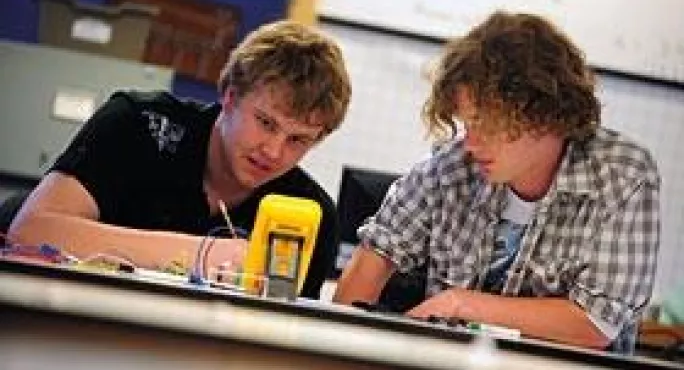Lord Baker leapfrogs government with plans for his own TechBac

Lord Baker of Dorking has stolen a march on ministers by announcing details of his own plans for a Technical Baccalaureate, which could be offered in pilot form as early as next September.
With City amp; Guilds as the awarding body, Lord Baker’s baccalaureate would combine technical qualifications, an extended project and thinking and employability skills with English, maths and ICT at levels 2 and 3.
At level 3, the baccalaureate could incorporate vocational courses such as City amp; Guilds, BTEC or Cambridge Technical diplomas, or at least two A levels in sciences or technical subjects, or a combination of academic and work-based learning.
The qualification is based on the curricula used at university technical colleges (UTCs), pioneered by former education secretary Lord Baker (pictured left), although it would be available to all colleges and schools capable of teaching it. Sir Michael Tomlinson, who chaired the group that developed the proposal, said it is supported by employers: Siemens, for example, was represented on the curriculum working group.
“We have got to have a curriculum and a qualification with a strong general education, which supports high-quality technical education,” said Sir Michael. “That was very much what the Wolf report (on vocational education) wanted to see. It’s what most other countries that offer baccalaureates do as well - France, Austria, Germany.”
For Sir Michael, the qualification offers a chance to salvage some of his diploma plan, published in 2004, which was watered down and then neglected by successive governments. “In a sense, it represents what I would regard as the essence of what we proposed,” he said.
But he rejected suggestions that combining academic and vocational qualifications in one programme would lead to criticisms that the “gold standard” of A levels had been diluted, the same criticisms that prevented his diploma proposals from being implemented in full. “There may be some who have objections whatever. I don’t think it did then and I don’t think it does now,” he said.
For City amp; Guilds, the plan builds on a Technical Baccalaureate the awarding body developed in the 1990s, before it was diverted by government policy into the now-defunct GNVQs.
But if it is to be a success outside of the UTC system, it also needs to win political support. At the moment, the Department for Education views its own TechBac plans not as a new qualification but as a measure for 16- 19 performance tables.
“We recently announced we are planning a Technical Baccalaureate for vocational courses. This will be a mark of achievement for young people studying elite vocational courses that will help them get good jobs,” a spokeswoman said. “As part of this we will consult on which of the highest-value vocational qualifications should be part of it.”
The DfE expects only 10 per cent of the 4,000 currently approved qualifications to be valid in the new performance tables.
The spokeswoman declined to comment on whether Lord Baker’s Technical Baccalaureate would cause confusion. The Baker Dearing Educational Trust and City amp; Guilds said they hope that the proposals can converge.
City amp; Guilds may have an ace up its sleeve in trying to force the issue: it owns the trademark to the terms “Technical Baccalaureate” and “Technological Baccalaureate”.
“We would like to think we have the elements of a strong Technical Baccalaureate,” Sir Michael said. “We would hope what we propose would be accepted by government. UTCs are convinced. From my discussions with other people in the FE world, this is what they want also.”
Lord Baker said his qualification is intended to allow students to overlap with the English Baccalaureate at 16, with some students achieving both, while at 18 it should prepare students for work and higher level study.
All students taking the level 3 Technical Baccalaureate will continue English, maths and IT studies, even if they are not pursuing them as qualifications. The baccalaureate also includes content that prepares students for professional qualifications, such as registration with the Engineering Council as an engineering technician, which they can complete when they move into employment.
Sir Michael said that he is open to the idea of other employer-focused baccalaureate qualifications being developed - in particular, one for creative industries - as well as a wholly academic version, as Lord Adonis of Camden Town has also proposed.
Some of the details of the Technical Baccalaureate are still to be worked out, but City amp; Guilds expects quick progress given its reliance on existing qualifications. It expects to be able to pilot the qualification in UTCs next year and to offer it on a general basis in 2014. Sir Michael said that a crucial element would be how quickly it could be included on the Ucas tariff.
Photo credit: Alamy
Keep reading for just £1 per month
You've reached your limit of free articles this month. Subscribe for £1 per month for three months and get:
- Unlimited access to all Tes magazine content
- Exclusive subscriber-only stories
- Award-winning email newsletters


